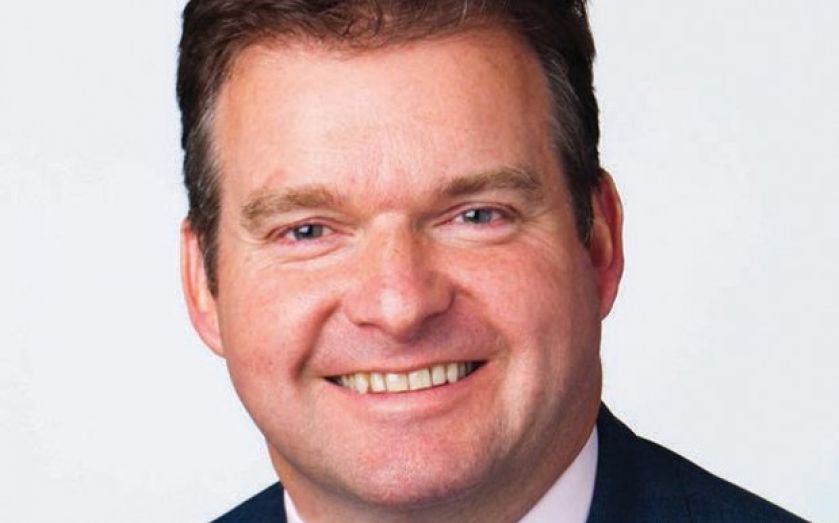| Updated:
Citi’s UK boss James Bardrick: The City won’t fall apart on a Brexit but Britain must do more to make EU work

Britain’s increasingly fierce row over the EU can be highly polarised. Depending on who you listen to, the economy will either crumble and die outside Europe, or an exit will free the UK from the dead hand of Brussels and lead to a new golden era of trade and prosperity.
Citi’s UK boss James Bardrick takes an unusually nuanced view, which feels refreshing mid-way through a long and increasingly bitter season of political campaigns on the EU.
“I firmly believe that from the financial services industry’s perspective, from UK economy and society’s perspective, and from Citigroup’s perspective, that the aim should be to make the EU work better and more productively,” said Bardrick.
“Remember, the UK very much led the formation of the single market, and has been right behind some of the best changes that have been made to it over its history. I see no reason why we shouldn’t continue to do that.”
He cites the formation of a single capital market as a particularly valuable goal, matching savers with borrowers more efficiently across the EU.
Bardrick has been up and down the country pushing for this at the party conferences. And he has not been constrained to the UK, travelling to Brussels to push MEPs in the direction of a deeper single market in services. “There is very little to be achieved by standing at the side and criticising,” he said. “Responsible leadership and responsible business require that you make sure you’re well educated, you educate others.”
But what if there was a referendum, and the UK chose to leave?
“It would be a less-good outcome, but we can cope if we have to cross borders between the UK and the EU,” he said, giving an unusually mild reaction for a leader at a global bank.
“We’d have to make changes to our operating model to reflect some of the increased inefficiencies that being outside the EU would throw up, and there is no doubt that would lead to changes in the way we have to deploy some of our resources, both financial and people,” he said.
Lobbying might be keeping Bardrick, particularly busy with a general election six months away, but it is hardly his only role. He is responsible for making sure the business meets regulatory standards for safety and soundness, that capital is in the right places in the right quantities, and that the staff are behaving appropriately and treating customers well.
That sounds obvious, but is not always achieved – Citi this month paid $1bn (£638m) to US and UK regulators to settle foreign exchange benchmark manipulation probes, for example, and coughed up $7bn this summer in the US over mortgage sales before the crash.
Bankers’ bad behaviour in the past is something that clearly weighs on Bardrick’s mind, and he returns to the fundamental purpose of banking and the finance sector several times.
“Our fundamental purpose as a bank needs to be serving, and I stress that word ‘serving’ – serving not just our clients, but also the economies domestically, regionally and globally that we operate in,” Bardrick said.
The big worry is that seven years on from the financial crisis, school and university leavers will not want to join banks such as Citi.
“Young people are focused on having a purpose – is what I am going to spend a very large amount of my life, a lot of time and energy, for a good purpose? We have to make sure banking is identified with a good purpose,” he said.
That is certainly an uphill struggle.
“We have to give more and more evidence of the value of banking. That will take a long time.”
JAMES BARDRICK CV
■ Bardrick grew up in Essex, attending Bishop Luffa Comprehensive, then Bancrofts School.
■ He left at 18 to work for engineering firm GKN, which then sent him to the University of Birmingham to study mechanical engineering and economics.
■ In 1987 he went into finance, and spent 14 years in corporate advisory at Schroders.
■ That business was acquired by Citigroup in 2000, letting Bardrick climb through the ranks of the industrial coverage corporate and investment banking team. He became its global head in 2006.
■ In 2009 he became EMEA co-head of corporate and investment banking. This year he became Citi country officer for the UK.